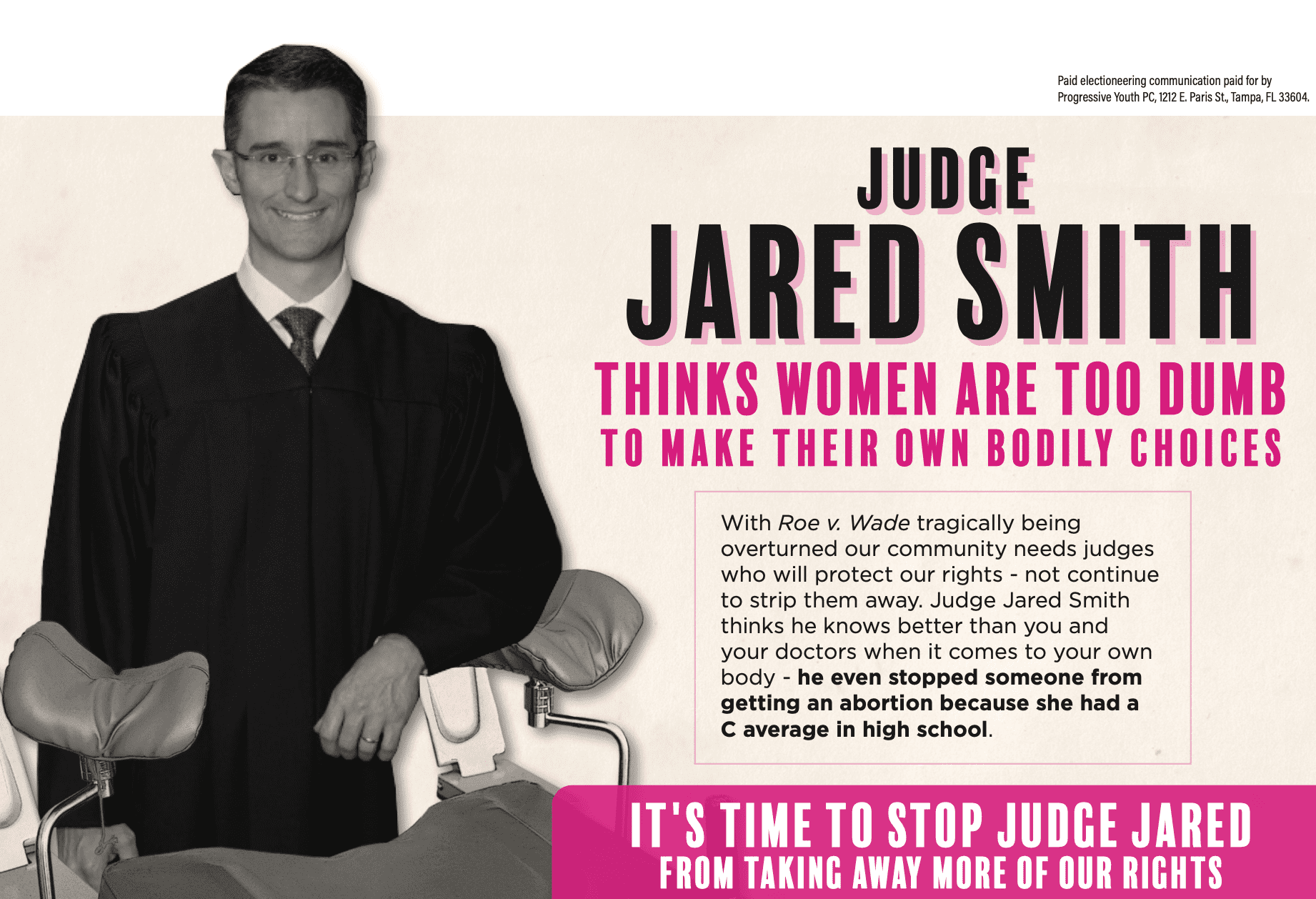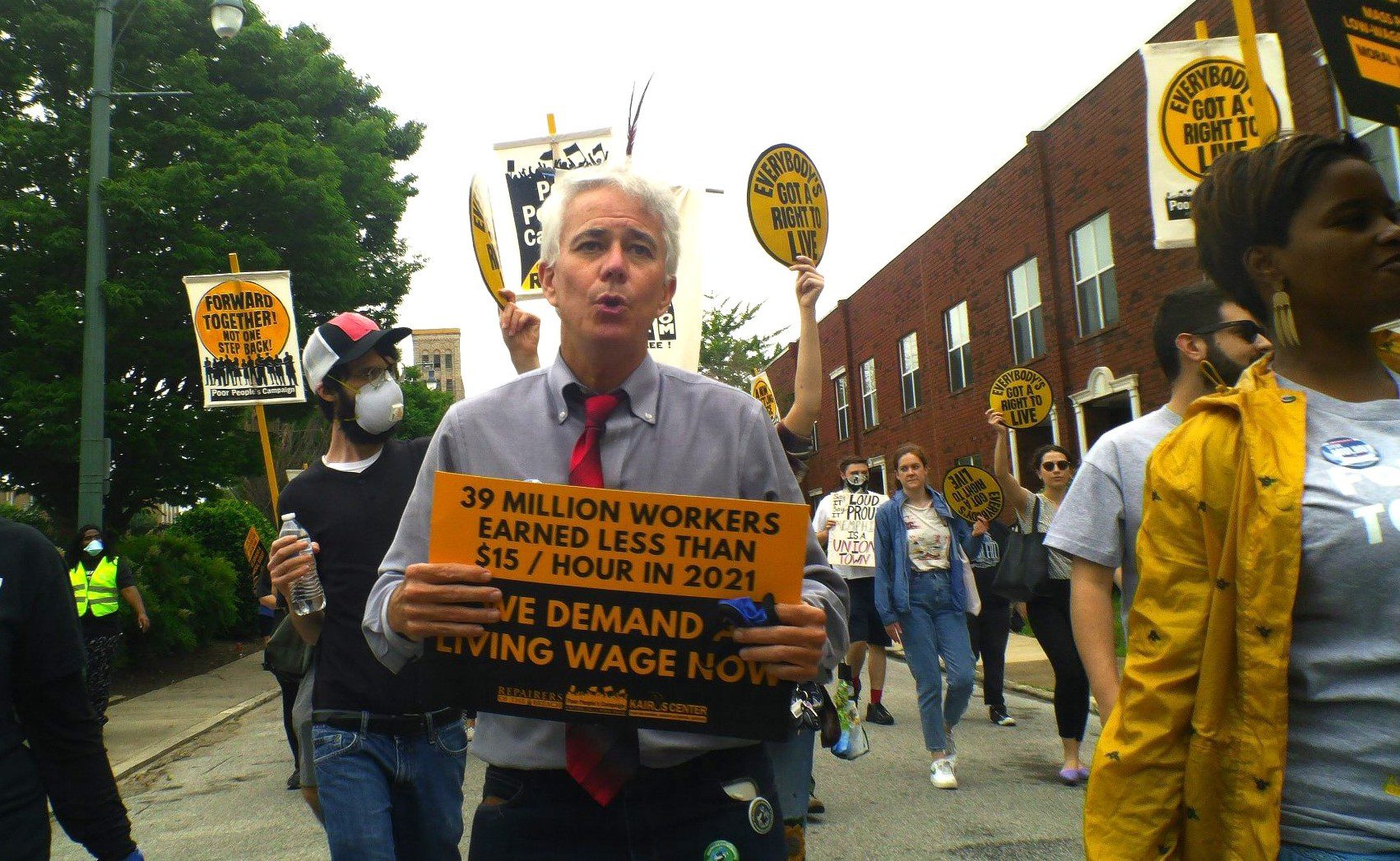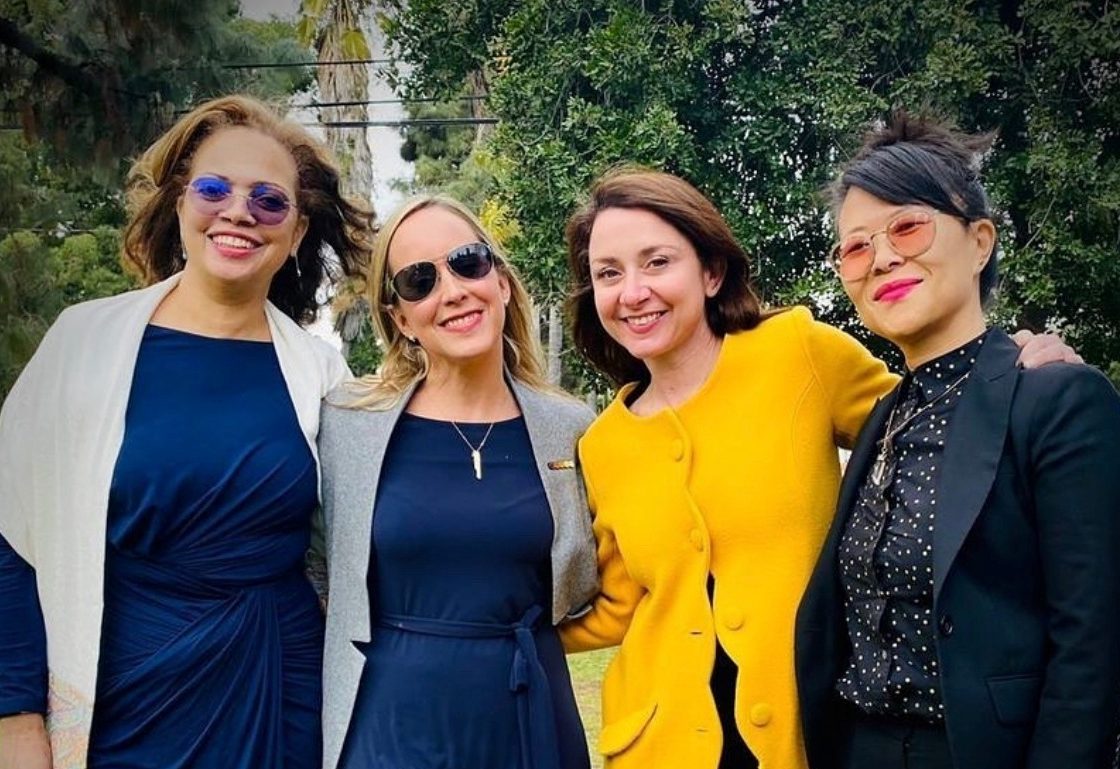In Pursuit of Harsher Punishments, San Francisco Courtwatchers Target Judges
After mirroring courtwatching programs usually piloted by the left, opponents of criminal justice reform are now looking to oust two local judges on March 5.
Piper French | February 23, 2024
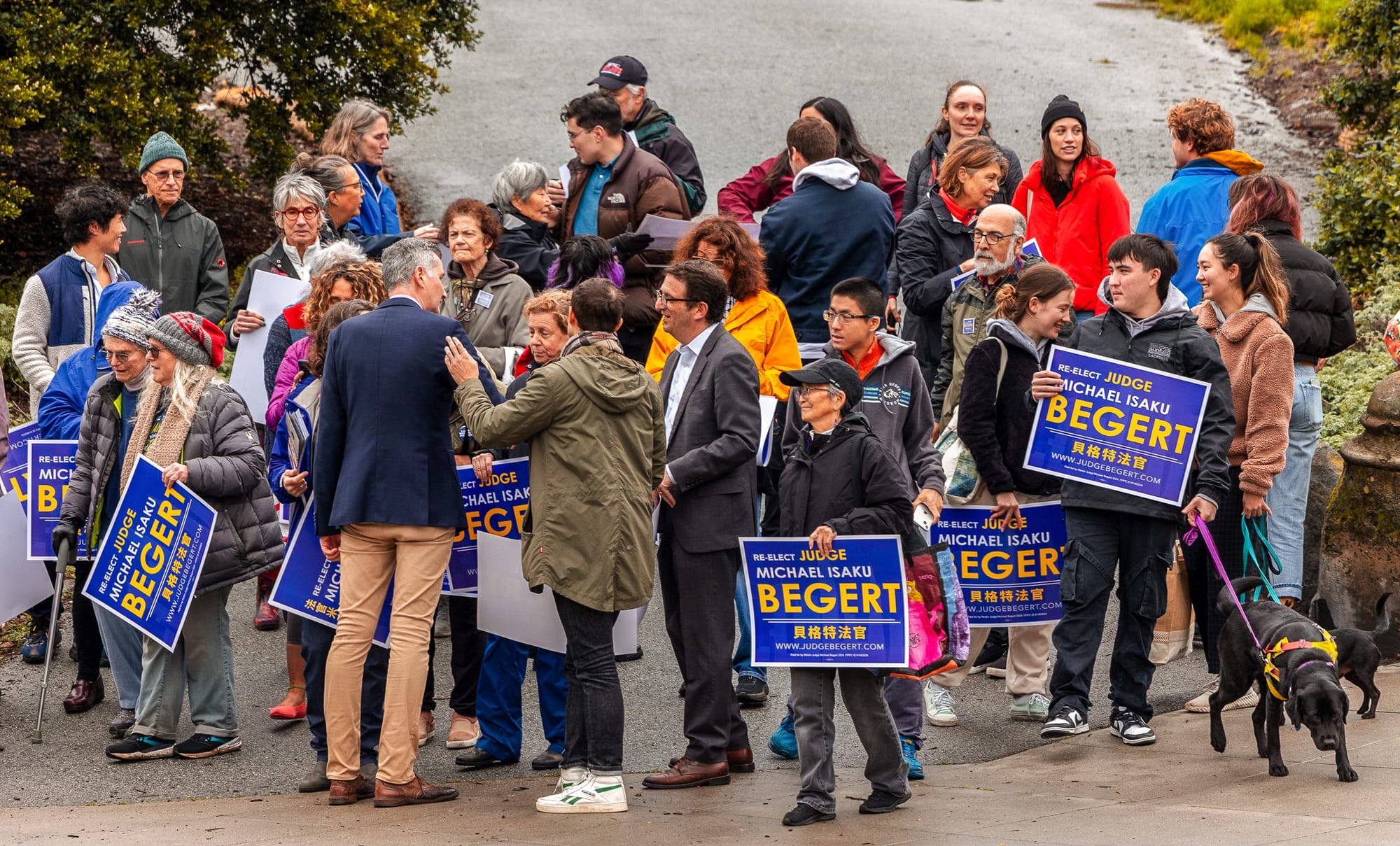

By the time singer-songwriter Fiona Apple introduced the practice of courtwatching to millions of Americans last year, urging them to go observe the basic machinery of the criminal legal system at work, these programs had emerged all over the nation. Typically, they’re piloted by people critical of mass incarceration who hope to shed light on the everyday abuses defendants suffer when nobody’s looking. In Los Angeles, organizers visit one of the county’s 36 courts twice a month. In Baton Rouge, the Reverend Alexis Anderson is at the local courthouse almost every day. “Everywhere you’ve got a court, somebody needs to be watching it in real time,” she told me.
A new courtwatching effort has sprung up in San Francisco in recent years. Like the other groups, Stop Crime SF volunteers attend hearings and take notes. They emphasize the importance of transparency and public accountability. “San Francisco courts are notoriously opaque,” the group’s founder, Frank Noto, told me.
But Stop Crime SF is approaching courtwatching from essentially the opposite direction. Noto and his fellow members want harsher sentences for people with repeated violations, and they’re highly critical of judges who let people out on their own recognizance, meaning without money bail, to await trial. “At a time when drug overdose deaths are at an all-time high, many chronic drug dealers and other repeat violent felons are free on our streets because of overly lenient court rulings,” the group said in an August statement.
Now, as California’s March 5 elections approach, Stop Crime SF’s sister c(4) organization, Stop Crime Action, is jumping into the city’s judicial races and working to oust two sitting judges whom it says are fueling this crisis, Michael Isaku Begert and Patrick Thompson. The group, which is also led by Noto, is championing Chip Zecher and Jean Myungjin Roland, Begert and Thompson’s challengers, who are also running with heavy tech and venture capital money and support from the local police union.
The response from Bay Area progressives has been furious, with City Supervisor Aaron Peskin urging voters to “reject this right-wing attack on San Francisco’s judiciary.” LaDoris Cordell, a former superior court judge in Santa Clara County, south of San Francisco, said she worries that “you may see a sea change in how judges behave” if Stop Crime SF’s effort succeeds and Begert and Thompson are removed.
“These judges are going to start handing down harsher sentences and who is it going to impact?” Cordell told Bolts. “Poor people, people of color, and here we go again.”
San Francisco has in recent years been embroiled in an intense debate over policing and incarceration that attracted national attention when the city elected and then quickly recalled progressive DA Chesa Boudin. In the years since, Boudin’s critics have continued blaming progressive reforms for crime and drug problems in the city, benefiting from an alliance with a fleet of billionaires who have used their considerable resources to boost politicians and legislation with a more punitive approach.
The latest offensive against San Francisco’s judges fits into this broader playbook. Still, the fact that advocates for greater punishment are using an approach crafted by proponents of criminal legal reform renders it more confounding. On its own, courtwatching is essentially neutral, and its empirical nature seems to render it trustworthy. The question is: Who’s watching? And what happens next?
The California prison population ballooned from just over 21,000 in 1978 to over 175,000 at its peak in 2006, driven in part by some judges’ tendency to maximize sentences. And the perception that voters would only support tough-on-crime officials has also shaped how the judiciary has approached its work.
“When I started as a baby judge, and I was first appointed, one of the older judges came to me and said, ‘Look, if you don’t want to get reversed in criminal cases, just throw the book at everybody,’” Cordell recalls.
Later, when she ran for reelection, Cordell was attacked for being too soft with defendants. “My opponent was this hard-nosed DA, and he put out, ‘she’s just a Rose Bird clone,’” she told me. That’s a reference to former California Chief Justice Rose Bird, who faced years of reprisals from conservative groups for overturning death sentences as unconstitutional. In 1986, residents voted decisively to remove her from office.
Cordell prevailed and secured reelection, though, ultimately staying on the Santa Clara superior court from 1988 to her retirement in 2001.
These battles have picked up in recent years. Santa Clara voters recalled Judge Aaron Persky in 2018 after he gave Stanford student Brock Turner a three-month sentence for sexual assault. Turner was required to register as a sex offender for life, but after the case made national news, some onlookers found the sentence unforgivably light and levied a campaign against the judge.
Inversely, also in 2018, four San Francisco public defenders ran from the left against sitting superior court judges; all lost, though one of them was elected the following cycle. In 2022, Angelenos elected a public defender to the bench who ran on a goal of lowering incarceration rates and criticized sitting judges for stubbornly resisting sentencing reforms.
Progressives’ wins in judicial races came alongside their takeover of DA offices in San Francisco in 2019 with Boudin and Los Angeles in 2020 with George Gascón, outcomes that intensified pushback from critics of criminal justice reform.
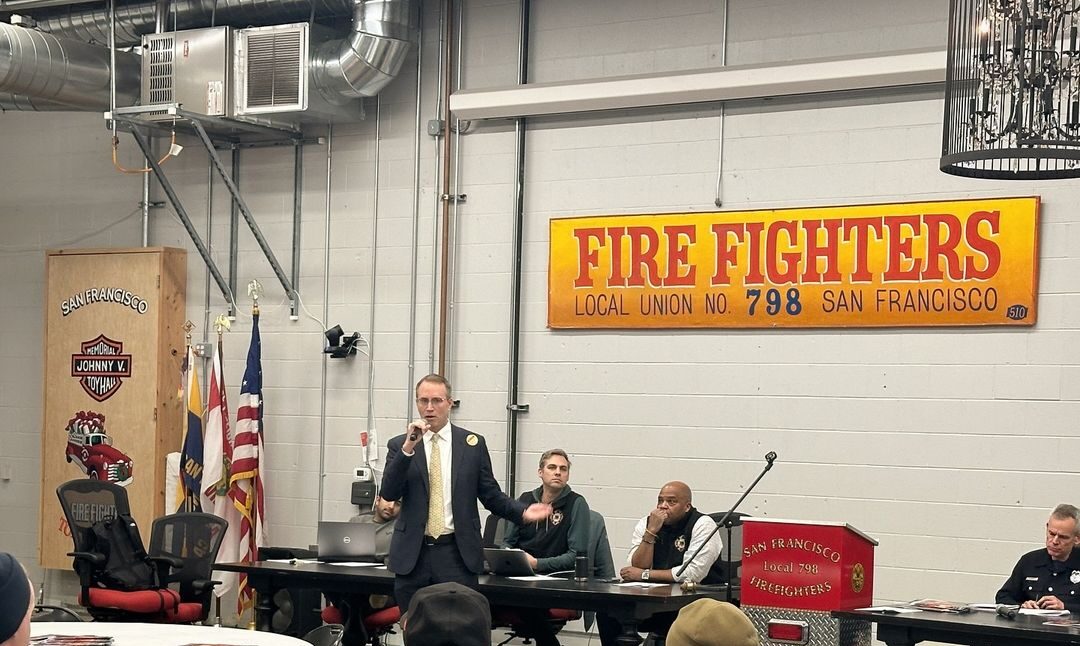

Noto, a former lobbyist for real estate developers, started Stop Crime SF as a neighborhood group back in 2017, advocating for more resources for police and new legislation to prevent car break-ins. The group promptly took on Boudin after his election and later supported the effort to recall him. That November, Joel Engardio, who was Stop Crime SF’s executive director, ousted an incumbent supervisor.
During this time, the group expanded its scope to scrutinize the bench, building a courtwatch program to get volunteers to study how judges responded to property crimes. “We wanted to make sure that judges understood, that the district attorney understood, that these are important too and they just couldn’t ignore this,” Noto told me. Eventually they began tracking responses to violent crime and drug offenses as well.
Stop Crime SF’s approach gained a powerful ally when Brooke Jenkins was appointed DA by Mayor London Breed to replace Boudin. Before her appointment, Jenkins was paid over $150,000 to consult for Neighbors for a Better San Francisco, a group that heavily supported the recall effort and has also backed Stop Crime SF.
Jenkins promptly clashed with local judges. When she said she would prosecute some 16 and 17 year olds as adults, the lowest age state law would allow, a veteran judge, J. Anthony Kline, refused to send any young people into the adult court system. In response, Jenkins’ office began blanket-challenging him, which effectively removed Kline’s entire case load. Jenkins also told ABC that “judges are refusing to make sure that these individuals stay in custody, and that has to change.” At a town hall in the summer of 2023, the DA excoriated local judges for releasing defendants with multiple drug offenses pre-trial, rather than keeping them locked up.
Zecher, one of the candidates endorsed by Stop Crime Action, told the San Francisco Chronicle that he was inspired to run by a comment Jenkins made urging challenges to sitting judges. Zecher, a corporate lawyer on the board of UC Law San Francisco, did not agree to a request for an interview for this article.
Boudin believes his successor has been “scapegoating” judges to deflect from her own responsibility, also pointing to Breed, an ally of Jenkins who last year vociferously criticized a federal judge for upholding a ban on of homeless encampments as long as the city lacks sufficient shelter beds. “They both leaned so heavily into the doom-loop, fearmongering approach to defining San Francisco as a way to get me out of office, and now they own the problems and the perceptions,” he told Bolts. “They can’t shake it and so they’re looking for someone else to blame.”
Breed, who like Jenkins is up for reelection in November, is also championing a wide-ranging ballot measure on March 5, Proposition E, that would expand the powers of the local police; Stop Crime Action has endorsed it. Another measure, Proposition B, would increase the size of the police force, but only if the city creates new taxes to pay for it, a condition that troubles police advocates; one of its chief opponents, Axios reports, sits on the board of Stop Crime SF.
Over the last year, Stop Crime SF’s courtwatching program, and its accusations that the local bench is fostering crime, have morphed into an effort to outright remove two local judges whom the group says exemplify this behavior. Noto wrote in the organization’s newsletter in November that Begert and Thompson “have a demonstrated track record of releasing serious and dangerous offenders back into the public.”
Begert presides over several of San Francisco’s collaborative courts, where judges either try to formulate a treatment plan for people who are jailed, or get people into services as an alternative to incarceration. He also oversees San Francisco’s CARE court, where people close to someone with substance abuse or mental health issues can petition the court to mandate treatment—a program that has also proved controversial on the left because of concerns around civil rights.
Begert told Bolts in an interview that he believes he is being targeted because of his work on the collaborative courts, alleging that his critics are pursuing an agenda that’s single-mindedly punitive.
“Why me?” he asked. “Because I’m running these treatment courts, and these treatment courts are built on trying to address the underlying causes of criminal behavior, to increase public safety by reducing future conduct. And if your primary motivation is to impose punishments on people, or to accomplish what we call in legal philosophy retribution—that’s not furthering your objectives.”
Noto rejects the notion that he’s politicizing the judiciary. He says his group is largely looking to promote transparency, and that its decisions about which judges to target stem from external feedback.
In the lead-up to the 2024 elections, Stop Crime Action released what it called a judicial “report card” that rated judges whose terms end in 2024, and gave both Begert and Thompson (and no one else) failing grades. According to The San Francisco Standard, the group drew on cases that were tracked by courtwatchers and a variety of other factors, including a survey the group sent out to local trial attorneys.
But the group only received roughly 25 answers—most of them, perhaps unsurprisingly, from prosecutors rather than judges and defense lawyers. Mission Local reported that the group misrepresented a single person’s assessment in a way that implied numerous negative reviews.
“I have no objection to engaging with the public and having people see what we do,” Begert told Bolts. “I think we should have more of that. My objection is to coming into the project with a political agenda.”
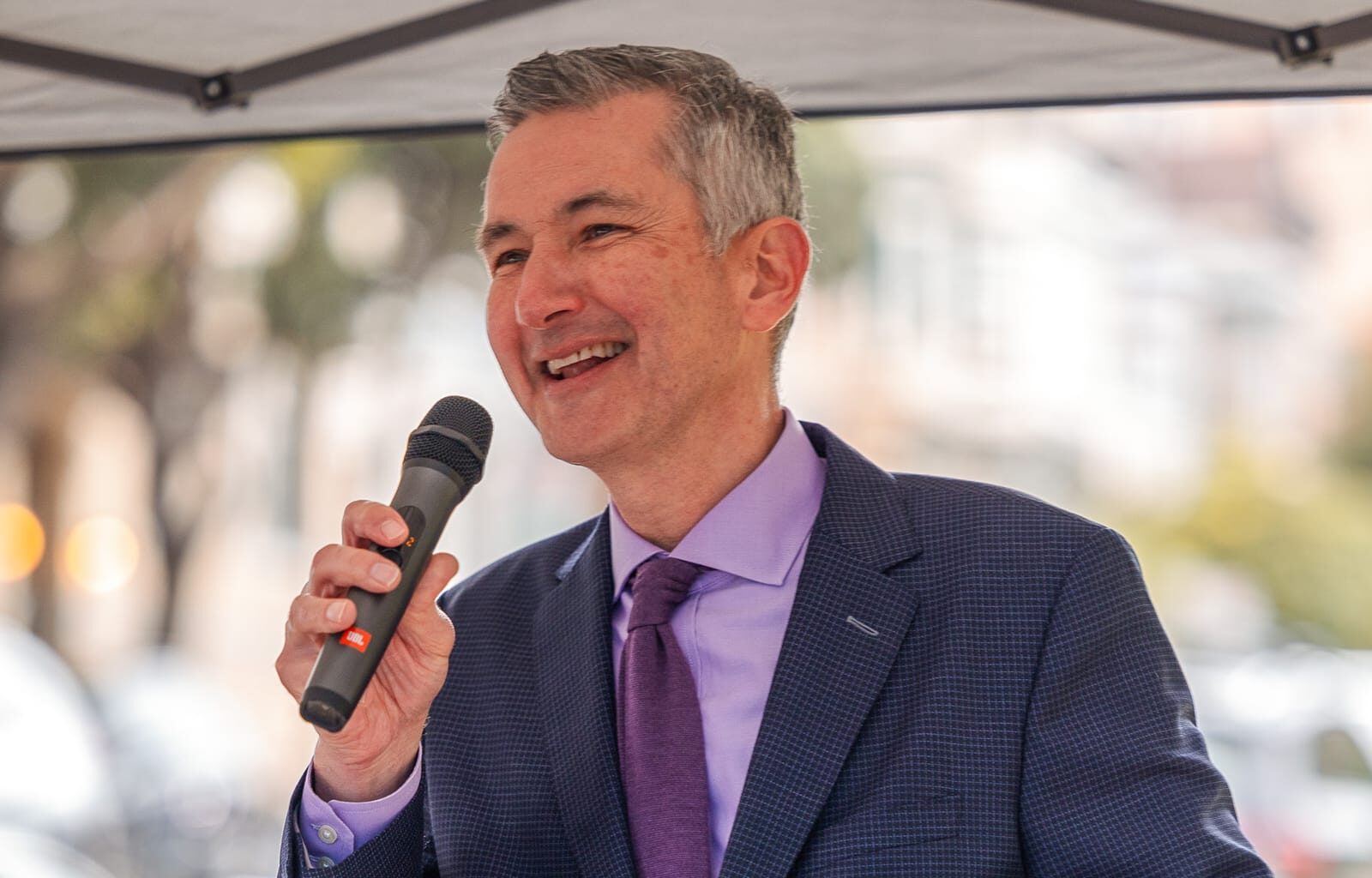

The other targeted judge, Patrick Thompson, handles preliminary hearings; he evaluates evidence to determine whether the case will continue to trial. Much of the criticism against him in the Stop Crime Action report card centers on cases where he released defendants with past convictions on their own recognizance pending their trial.
The San Francisco Chronicle found this month that, in a number of the cases, Thompson’s decision to release received no objection from the prosecutor on the case, meaning that all parties agreed the defendant should be released pending trial. Lara Bazelon, a law professor who advocates for criminal justice reforms in San Francisco, says pretrial detention is legally considered a final course of action. “It’s the resort only after every other less restrictive alternative has been considered and rejected,” she said. “And that’s because when you lock someone up pretrial, you’re taking someone that is presumed innocent, and taking away their freedom for weeks or months or even years at a time.”
Thompson did not respond to a request for an interview, nor did his opponent Roland, who currently works as a prosecutor in Jenkins’s office.
The San Francisco Bar Association, the more traditional rating system for local judges, rates each of Thompson and Begert as “well-qualified.” Zecher and Roland received no ratings from the bar association because they declined to participate in the process, an unusual decision.
The president of the association told KQED in December that she’s worried about attacks on “the independence of the judiciary.” Boudin echoed that concern, telling Bolts that judges are constrained in how they can defend themselves; he pointed to state rules known as the judicial canons that prohibit judges from talking about the cases in front of them. “Unsurprisingly, they’ve chosen people who are uniquely vulnerable,” he said.
Courtwatchers on the left view judges as too prone to detain defendants pretrial and throw the book at them—even beyond what the law requires. Stop Crime SF, meanwhile, sends its members into courtrooms to observe criminal cases with a form asking them to rate whether “defendants were held accountable for their actions by the court.” The form defines accountability, among other things, as whether a judge sets money bail and ultimately sentences someone at—or beyond—sentencing guidelines.
Progressive courtwatchers elsewhere have taken note of the effort in San Francisco. And while their goals differ significantly, some say they support more scrutiny on the courts on principle, since they believe courts’ opacity to the public has produced harmful results overall.
Courtwatch LA also has a website, Rate My Judge, where community members and lawyers can weigh in on their experience in court. A lot of the negative reviews center on judges’ treatment of the people in their court, but some are outcome-focused, too—one judge’s page has several comments alleging that he categorically denies resentencing petitions. They also plan to challenge judges in the future, though they would not consider a score statistically significant until it was composed of at least 45 reviews.
“I think it is something the left has to sort out or at least accept as inevitably a two way street,” said Bazelon. “Courts are open to the public. There’s nothing unlawful or untoward about going and observing what happens in court. And I don’t think it should come as any surprise that it’s going to be a tool that both sides are going to use.”
The Los Angeles organizers tend to also distrust the assessments by professional groups like the bar association, arguing that while they’re purportedly neutral, they’re biased against candidates of color and women, and against lawyers opposed to the status quo. They say their approach brings in a different, necessary perspective.
“At the end of the day, it is a community tool,” said Titilayọ Rasaki, policy and campaigns strategist for La Defensa, the Los Angeles organization that runs Courtwatch LA. “I think it’s just a question of who’s in and who’s out in your community.” She noted that many of Courtwatch LA’s volunteers have had past contact with the criminal legal system. For these people, she said, “it’s a kind of reclamation, or a way of shifting your relationship to the criminal legal system that has probably impacted your life in vastly different ways.”
Rasaki and her colleague Gabriela Vázquez, deputy director of La Defensa, told me that they weren’t threatened by Stop Crime SF’s use of a similar playbook. In their eyes, the problem with what’s happening in San Francisco is not that incumbent judges face scrutiny or opponents; it’s the “scare tactics” employed against them. “If we have a drug overdose epidemic, the easy way out is just criminalizing people, or attacking judges,” Vázquez said. “What we’re seeing in the Bay Area is that they’re trying to take the easy way out and find scapegoats.”
Still, Rasaki said she welcomes anyone to courtwatch. If they feel comfortable with how poorly people are treated and how easily they’re incarcerated, she said, “that’s a value judgment for them… We can disagree and we can use different organizing strategies and the ballot box, I guess—this is where we’re duking it out. It’s a contention of ideals.”
“If it gets more people in the courts, if it gets more discourse about what it is that the courts are up to, and whether or not they’re meeting the needs of our society—that’s a conversation I’m really trying to start,” she said.
Stay up-to-date
Support us
Bolts is a non-profit newsroom that relies on donations, and it takes resources to produce this work. If you appreciate our value, become a monthly donor or make a contribution.


